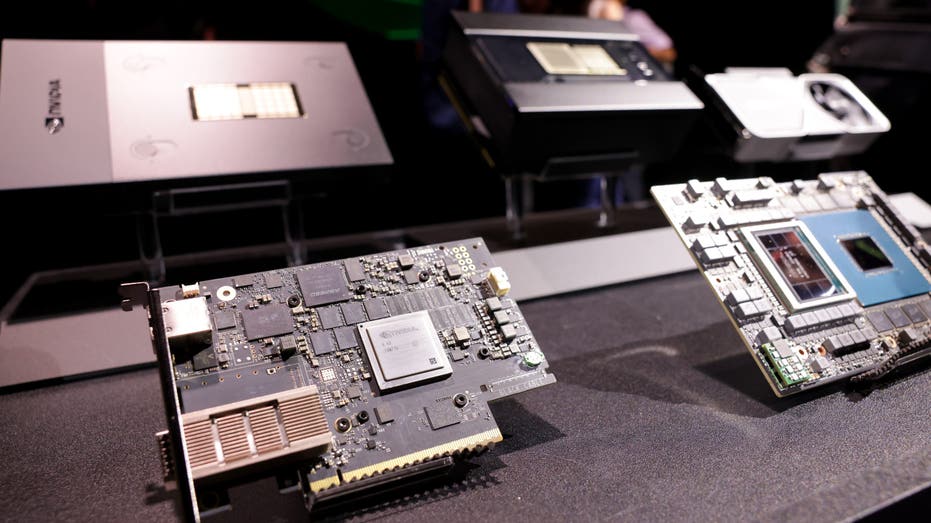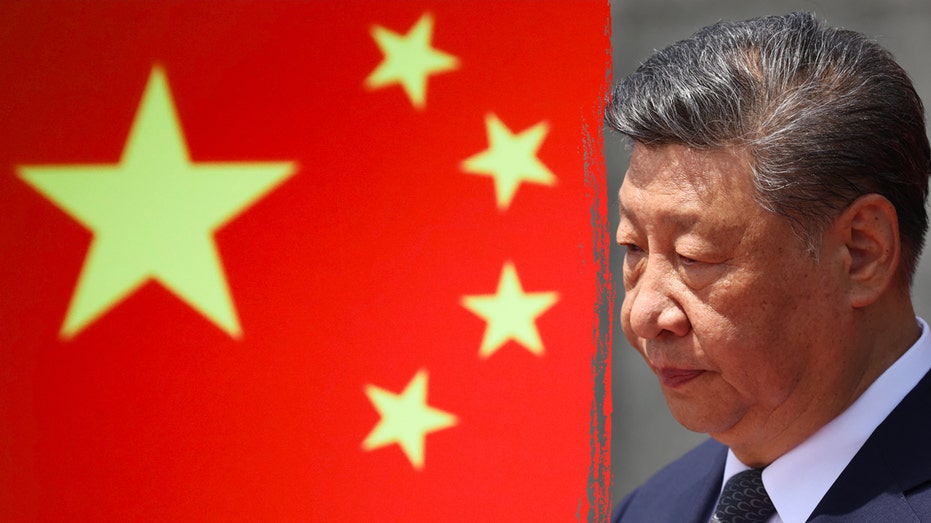AI executives known as President Trump’s resolution to permit Nvidia to promote chips to China ‘sensible’ as a result of it permits a U.S. firm to be the dominant drive within the CCP’s AI stack.
In a flip of occasions, a personal assembly between President Donald Trump and the CEO of the world’s largest chip producer, Nvidia’s Jensen Huang, led to the undoing of a ban on transferring its H20 AI chip to China, a multibillion-dollar boon for the corporate.
The Commerce Division had restricted gross sales of the chip in April, costing Nvidia billions of {dollars}, and undoing the ban was meant as a concession in a minerals deal during which China would cease proscribing entry to its uncommon earths.
Nvidia stated Monday evening it might resume gross sales of its H20 chip, and Commerce Secretary Howard Lutnick defended the transfer,
“We don’t promote them our greatest stuff, not our second-best … the fourth-best chip,” he stated.
NVIDIA CEO SAYS AI WILL CREATE MORE JOBS DESPITE WORKFORCE CHANGES
A personal assembly between President Donald Trump and the CEO of the world’s largest chip producer, Nvidia’s Jensen Huang, led to the undoing of a ban on transferring its H20 AI chip to China, a multibillion-dollar boon for the corporate. (Andrew Harnik/Getty Photos / Getty Photos)
As soon as blocked in April over nationwide safety issues, the H20 is now being accredited beneath the banner of broader commerce negotiations, particularly in trade for uncommon earth mineral entry from Beijing. However this shift sparks essential questions.
Is the U.S. buying and selling a strategic benefit in synthetic intelligence or permitting China to change into depending on American expertise as some extent of leverage?
Critics argue the administration is sending conflicting messages. Simply days in the past, a White Home-sanctioned ban blocked chip gross sales to the UAE’s G42 AI agency as a result of China-related safety issues, but the ban on China-bound H20s is now being relaxed.
Rep. John Moolenaar, chairmain of the Home Choose Committee on China, condemned the choice, warning that U.S. AI chips may “strengthen China’s navy capabilities, suppress residents and threaten U.S. innovation.”
Jack Burnham, AI and tech researcher on the Basis for Protection of Democracies (FDD), echoed an analogous concern. He informed Fox Information Digital that whereas the H20 chip will not be as highly effective because the newer chips, “on the similar time, it’s much more highly effective than any chip that China can produce at scale, and it’s the chip that China wants precisely on this second.”

The Commerce Division had restricted gross sales of the Nvidia H20 chip in April, costing Nvidia billions. (I-Hwa Cheng/Bloomberg through Getty Photos)
“It’s what permits AI to suppose correctly,” he stated, including China will use it to develop its personal superior AI fashions like Deep Search and is “very seemingly” to make use of the chips to additional its navy modernization effort.
“It’s crucial to acknowledge that it is a place during which the U.S. is especially forward. It has an unparalleled benefit, and that is a bonus that the U.S. ought to proceed to attempt to maintain onto,” Burnham stated.
He stated China will depend on U.S. chips to advance its AI solely till a Chinese language various turns into extra “price efficient.”
However Arnie Bellini, a number one AI and cybersecurity investor, had a unique take.
“It is a sensible technique from the White Home,” Bellini stated.
“So we’re giving them constrained entry to an older chip, and in return we strengthen our personal industrial provide chain” in trade for uncommon earths minerals, he stated.
Bellini added that stopping China from accessing even H20s dangers forcing companies like Huawei to construct impartial AI stacks.
TRUMP’S TOP TECH EXPERT WARNS US CAN’T GET COMPLACENT IN AI COMPETITION WITH CHINA
“Huang is aware of what he’s doing,” Bellini stated. “Let China have the H20, as a result of Nvidia is already transferring on to extra superior platforms. What they get immediately will likely be outdated by the point it’s deployed.”

Some specialists warn that China will use the chip to advance its navy. (Getty Photos/Photograph illustration / Getty Photos)
Whereas China would get the chips, it might nonetheless want Nvidia’s proprietary platform, the CUDA software program, to run its AI fashions.
“Even when China will get the {hardware}, they’re nonetheless working on a U.S.-controlled software program ecosystem. That’s the silent leverage,” stated Bellini.
Simeon Bochev, a former Apple AI government and present CEO of Compute Change, stated he favored lifting the ban. Not doing so could be repeating what occurred when the U.S. refused to share its 4G networks with China, he stated.
“What occurred? We compelled China to activate, which is what they did. They developed 5G expertise, after which 5G from China grew to become the predominant expertise around the globe,” he stated. “We had a lead that we gave up.
CLICK HERE TO READ MORE ON FOX BUSINESS
“We’re not speaking about sending proprietary American knowledge to China. What we’re speaking about is can the main American firm in chips be allowed to promote its expertise in a market the place they’ll more than likely be capable to innovate round that within the coming years?”
